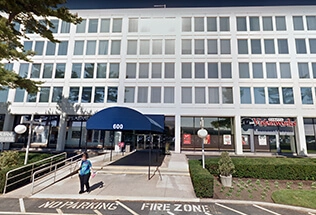At some point, you may find yourself served with legal documents stating that you are being sued by another person or party. If a personal injury claim is filed against you, don’t panic. You can defend yourself in many ways, and there’s no guarantee you’ll have to go to court, either.
With the right legal representation, you can defend yourself against personal injury claims and avoid having to pay major costs out-of-pocket. Call Schwartzapfel Lawyers today for more information, a free case evaluation, or both, at 1-516-342-2200. Alternatively, you can visit us online to set up an appointment to discuss your situation, any needs you have, and, most importantly, how we can best help you recover – physically, emotionally, financially.
If Applicable, Gather Evidence
You can protect yourself from slanderous and/or inaccurate claims by gathering evidence at the scene of an incident or accident. For example, if you or a loved one has been involved in an auto accident with another New York City driver, it is advisable whenever applicable to:
- Take photographs and/or videos of the scene of the accident, including debris, your vehicle and the other vehicle involved, and the license plates of both vehicles.
- Exchange insurance information with the other involved driver(s). That way, you can quickly file a claim for insurance coverage and avoid being accused of trying to hide your involvement.
- Speak to a police officer, and give your statement without admitting to guilt. Then, ask how you can obtain a copy of the police report for your records.
By gathering evidence in support of your claim, you can more readily prove that you were not at fault for the auto accident in question. With this, if you are later sued for personal injury damages in relation to the accident, you will be in a position to quickly counteract opposing claim(s) with evidence showing that you are not liable for compensatory damages.
Contact Legal Representatives
Regardless of the circumstances of your claim, you should contact legal representatives right away. Knowledgeable personal injury attorneys like the ones at Schwartzapfel Lawyers can get to work defending you against claims by:
- Helping you understand the nature of the claim being brought against you
- Poking holes in the claim being brought against you, which can lead to an all-out dismissal before legal proceedings begin in earnest
- Gathering evidence to be effectively presented in court, during arbitration, or during any other proceeding
- Coaching you through the legal process, including instructing you on how to best represent yourself in court, at trial, during deposition(s), and beyond
As well, the right legal representatives can ensure that you don’t make any mistakes that could possibly damage your case or defense.
That’s why it’s essential to contact knowledgeable personal injury attorneys like Schwartzapfel Lawyers sooner than later. We have more than 150 years of combined experience defending New Yorkers just like you against personal injury claims, and our lawyers have seen it all.
So, please, don’t wait. Your financial future is too important. Instead, act now and contact us at 1-516-342-2200 for a free case evaluation.
Examine the Complaint Document(s)
Whenever you are served court documents, the so-called complaint document will likely be included among them. The complaint document is the document explaining the nature of the claim(s) being brought against you. It will typically contain information relating to:
- The nature of the offense (i.e., what it is you are being accused of)
- Why the plaintiff believes that you, the defendant, are guilty of negligence and/or any other crime(s) stated in the document
- What the plaintiff intends to recover
- Any other relevant information
That said, complaint documents can vary widely in terms of their length, contents, and next steps. Depending on the skill of the plaintiff’s attorneys, the complaint document may or may not be legally airtight, opening a potential opportunity for a proactive defense on your part.
Respond Through Your Attorneys
With your lawyers counseling you throughout the process, you can then respond. Some courts may serve paperwork where you can respond on an official document, or your attorneys may draft a responding document from scratch.
In either case, you can respond with a document called the answer, which may contain items like:
- A denial of general and/or specific allegations
- An explanation of your behavior
- A formal or informal response to the plaintiff or their attorneys
- Defensive statements by responding directly to specific complaints or allegations
Your attorneys may advise you one way or the other on how to respond. For instance, if the allegations are baseless or outlandish, they may recommend responding by preparing a defense. They may believe that you can defend yourself quickly and easily by presenting very basic evidence.
On the other hand, your attorneys may advise you to respond more specifically, particularly if the plaintiff’s claims are complex. Note, too, that as no two personal injury claims are the same, you should heed your attorneys’ advice whenever possible.
For more on this and related topics, or for a free case evaluation, call Schwartzapfel Lawyers now at 1-516-342-2200.
How To Negate a Plaintiff’s Claim
You can negate the claim from an aggrieved plaintiff in many ways. Your attorneys may recommend one of these negation strategies depending on the specifics of your case and/or the complaints raised in the plaintiff’s filings.
Show That the Statute of Limitations Was Missed
For example, you and your attorneys can show that the plaintiff missed the statute of limitations. Note: The statute of limitations is a legal window within which a plaintiff has an opportunity to bring a lawsuit against another party.
For example, most personal injury lawsuits in New York State have a statute of limitations of three (3) years. So, if a plaintiff tries to sue you four (4) years after an alleged incident took place, their lawsuit will not be accepted and you will not have to pay any damages.
Show That the Plaintiff Doesn’t Make an Allegation
Alternatively, you and your attorneys may show that the plaintiff doesn’t make a specific allegation with causation. In any viable personal injury lawsuit, the plaintiff must show that your actions specifically led to the damages and/or injuries being alleged. To be successful, this involves proving a causal or direct link between the accident and your actions.
If the complaint document or initial lawsuit paperwork doesn’t show a causal link, your attorneys can show that the plaintiff technically doesn’t make an allegation against you. Oftentimes this will be enough to have the lawsuit thrown out or ignored by the legal system.
Show That the Plaintiff Did Not Mitigate Damages
Your attorneys may also be able to prove that the plaintiff in question didn’t mitigate damages from the alleged injury or incident. For instance, if you and another person are involved in an auto accident, and the other driver isn’t checked for injuries, the likelihood of their recovering damages against you for any injuries suffered is slim, as they did not take reasonable steps to mitigate the harm.
This form of defense can be accomplished through gathering such evidence as police reports, examining traffic camera footage, and formally requesting doctor’s notes and/or medical evidence of examinations received. Put simply, for a plaintiff’s lawsuit to succeed, they must do many things in the right order and never at the wrong time. Moreover, in the event any of these steps are skipped over, a skilled defense lawyer will work to have the case thrown out in its entirety.
Do You Always Go to Court If Someone Sues You?
No. In reality, most personal injury lawsuits are settled out of court (97%, in fact, with the other 3% split between trials with judges and juries). Therefore, if someone brings a personal claim against you or a loved one, it will likely be settled out of court through either negotiations, arbitration, and/or mediation.
Even in cases that appear to be open and shut, trials can take a long time and cost a lot of money on both sides. Trials are also unattractive to most plaintiffs because they can eat into any damages awarded, as, the longer a trial runs, the greater costs will be for legal representation and court fees.
As such, if sued for personal injuries by another party, you shouldn’t panic and you shouldn’t assume that you’ll be in front of a judge anytime soon. The fact of the matter is that before your case ever enters a courtroom it can likely be settled with the help of an experienced legal team.
Seeking a Settlement for a Personal Injury Claim
The best course of action, should a plaintiff have a viable case against you, is to seek a settlement outside of court. A settlement is any agreement or arrangement you and the plaintiff come to, with or without the assistance of your attorneys.
For example, if the plaintiff claims you are responsible for their auto accident injuries, you and that plaintiff can come to a settlement regarding:
-
- How much, if any, you’ll pay to cover the cost of those injuries
- Whether you’ll need to pay anything beyond your insurance policy limit
- Whether you’ll need to do anything further to satisfy the plaintiff’s claim of damages
With the right lawyers on your side, odds are you’ll be able to negotiate a settlement that works for both parties. Remember: It costs you nothing to hire defense attorneys who operate on a contingency fee basis. And when a firm works on a contingency fee basis like Schwartzapfel Lawyers, you won’t ever have to pay a dime unless you first recover damages.
Contact Schwartzapfel Lawyers Today
In short, if a personal injury claim is filed against you, it doesn’t mean you are guilty; nor does it mean you’ll have to pay any money to the plaintiff in your case. With the right legal team representing you, you can defend yourself in and out of court.
Schwartzapfel Lawyers is well-equipped and ready to assist with your personal injury claim. We’ve defended countless New Yorkers against false and/or slanderous claims, and have helped people just like you avoid having to pay major damages to plaintiffs.
So, for the answers to all of your personal injury questions, a free consultation, and so much more, contact us today! Simply dial 1-516-342-2200 and allow Schwartzapfel Lawyers the honor and privilege of fighting – and winning – for you!
Sources:
Schwartzapfel Lawyers, P.C. | Fighting For You™™
Bureau of Justice Statistics | U.S. Department of Justice
Filing A Complaint To Start Your Case | Civil Law Self-Help Center
Statute of limitations | Wex | US Law | LII / Legal Information Institute
















